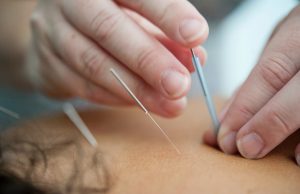This article discusses various aspects of acupuncture and its effectiveness as a form of treatment. It highlights the polarising opinions about acupuncture and the need to consider the evidence and research behind it. The article mentions that a significant number of studies have been published on acupuncture’s effectiveness, with even more potentially conducted in different languages. It emphasises the importance of embracing the potential benefits of ancient practices like acupuncture in modern healthcare.
Acupuncture doesn’t work
When it comes to acupuncture, opinions can be polarising. Some assert that it is nothing more than a placebo, while others fervently swear by its effectiveness. So, which side is right? Let’s delve into the research and explore the evidence. In fact, a staggering 1,680 studies, meta-analyses, systematic reviews, and literature review articles have been published in English within the past five years alone, according to PubMed, a renowned scientific research platform. It’s important to note that this number only accounts for studies published in English. Since non-English studies are often excluded from Western Science frameworks, it is impossible to determine the full extent of research on acupuncture’s effectiveness. Consequently, there may be numerous other studies underway or already conducted in different languages. While scepticism is healthy, it is essential to consider the wealth of evidence and the endorsement it has received from reputable authorities. As we continue to unravel the mysteries of human health, acupuncture stands as a testament to the potential benefits of ancient practices in the modern world. Let us embrace the scientific advancements and open our minds to the possibilities that acupuncture brings for holistic healing.
Are there any shortcuts or quick fixes to avoid multiple acupuncture treatments?
While it’s natural to seek quick fixes or shortcuts, it’s essential to approach your health and well-being with a long-term perspective. Some acupuncture treatments may offer temporary relief or immediate results, but they may not address the root cause of the issue. The acupuncturist will continuously assess your progress and adjust the treatment plan accordingly. By undergoing the recommended number of treatments, you give yourself the best chance of resolving the underlying problem and achieving lasting improvements. Acupuncture treatments often work cumulatively, building upon each other to provide long-lasting benefits. Just like learning a new skill, repetition and reinforcement are key to achieving lasting results. Remember, Rome wasn’t built in a day, and quality results often require patience and commitment.
Acupuncture “Dosage”
Consider dosage as the right amount of medicine needed to combat an illness. Similarly, the number of acupuncture treatments required to completely resolve a pain complaint depends on the severity and complexity of the issue. A higher dosage, or more treatments, ensures that the underlying cause of your pain is thoroughly addressed and treated, leading to a more efficient and lasting resolution. Research has shown that to completely resolve a pain complaint, it is necessary to experience approximately 12 treatments. Think of your treatment plan as a journey. Just like taking small steps consistently leads to reaching your destination, frequent treatments help maintain momentum and progress towards resolving your pain complaint.
Treatment plan are really important
By spacing out your treatments too far apart, you risk losing the progress you’ve made and may require more sessions in the long run to achieve the desired results. While it’s possible to experience some improvement with fewer treatments, completing the full course is highly recommended for complete resolution. Not following a treatment plan is like trying to bake a cake without a recipe. You might end up with a gooey mess instead of a delicious dessert. Similarly, without adhering to a treatment plan, you may experience delayed recovery, prolonged symptoms, or even worsening of your condition. It’s important to work collaboratively with your acupuncturist and follow the prescribed plan to optimise your chances of achieving the desired results.
My acupuncturist is trying to get more money from me by asking me to come back.
Acupuncture treatment is not just for sporadic, intermittent relaxation like spa therapy. The acupuncturists are formally trained healthcare professional that registered with the Australian government in order to practice in Australia. They treat legitimate illness and required to hold at least Bachelor level qualification in their field. Acupuncture is not learned through a weekend course. Acupuncture degree programs are usually 4 to 5 years full time. Hence, they are equipped with relevant clinical expertise and experience of how many treatments it usually required to get the job done properly. If you leave early in a course of treatment, it’s not surprising that you won’t get the results that you want. Put it in a more simple terms, it is like baking a cake, skipping a few ingredients or not following the recipe precisely may yield a partially baked cake. Your acupuncturist is trying to help you get well, rather than trying to fleece you for extra cash.
If it doesn’t heal you 100% straight away, it’s not worth persisting with
It is unfortunate that while acupuncture is a strong healing tool and sometimes one treatment is enough, multiple sessions are necessary to treat certain ailments. As dedicated and busy professionals, our goal is to assist as many people as possible, so we do not believe it is necessary to provide you with excessive treatments. If your condition is chronic, it may take a while for treatment to be effective, but an acute condition may be remedied more quickly with multiple treatments close together.




Recent Comments